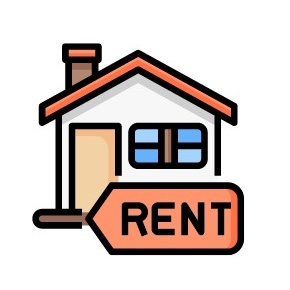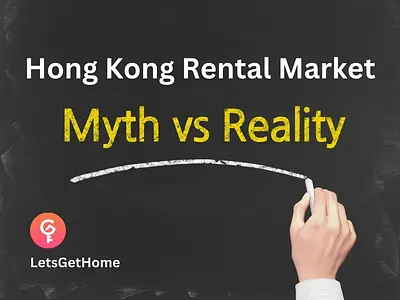Hong Kong Rental Guide: Securing a Lease & Avoiding Disputes
Listen to the blog audio:
During the leasing process, both tenants and landlords may face various challenges, including issues related to rent, living quality, and maintenance. Hence, we're sharing some practical advice to help reduce the risk of rental disputes and ensure a smooth lease signing.
What should you pay attention to when signing a lease?
When you're about to sign a lease, pay close attention to the document. It defines the rights and obligations between the tenant and the landlord. Ensure you fully understand all the terms in the lease.
Typical leases specify the rental period, rent amount, payment schedule, deposit, purpose of the rented space (e.g., residential, office, or production), options for renewal, how to terminate the contract, and other relevant terms.

Can you rent without a lease?
Some might think the biggest risk for a tenant is losing the deposit. However, violating a lease can have more severe consequences. For landlords, if a tenant breaches the lease, they might even be held accountable to third parties.
What's the difference between a "Tenancy Agreement" and a "Lease"?
In Hong Kong, you might hear the terms "Lease" and "Tenancy Agreement". They differ significantly in duration and formality.
A "Lease" is for contracts over three years. It requires a formal process, including signatures, a red seal stamp, and document exchange between parties. It's advisable to register such leases at the Land Registry for legal standing. Individuals use a red seal, while companies use their company seal with a board authorization.
On the other hand, a "Tenancy Agreement" is for up to three years and can be verbal or written. Written ones don't require stamping, but for security, both parties should sign and exchange identical copies. Business entities should use their company seal when signing.
What are the implicit responsibilities in a lease?
Both landlords and tenants should note that unless otherwise specified in the lease, the following implicit responsibilities usually apply:
- Landlord:
- Ensure the tenant can use the property without eviction or disturbance.
- Not hinder the property's designated use.
- If furnished, ensure items are suitable for living at the start of the lease.
- Tenant:
- Pay rent on time.
- Be responsible for property tax.
- Use the property reasonably, accepting normal wear and tear.
- Not damage or alter the property's nature.
- Return the property to the landlord at the end of the lease.
What is a Building Covenant?
A Building Covenant is essentially the "rules" for multi-story buildings, outlining the rights and responsibilities of owners and tenants, such as:
- No structural modifications to the unit or building.
- Not arbitrarily altering or disconnecting communal utilities like water, electricity, etc.
- No illegal, non-compliant, or improper activities within the unit.
- Activities within the unit shouldn't disturb other residents or the entire building.
- No random advertisements or signs outside the building.
- Common areas shouldn't be used as private spaces.
- There might be other rules, like no hanging clothes outside or restrictions on pets.
What are the risks of not having a written lease?
- Ambiguity in rights and responsibilities: With only a verbal agreement, one might forget specific arrangements, like who's responsible for repairs or if pets are allowed.
- Difficulty in proving claims: In case of disputes, verbal agreements offer little concrete evidence in court.
- Regulatory risks: In Hong Kong, landlords must provide tenants with rent receipts detailing the amount, period, and payment date. Failure to do so can result in fines up to HK$2,000.
- Insufficient protection: Without a written lease, both parties are at risk.
- Disputes over additional costs: Without clear records, issues might arise over utilities.
- Challenges in early termination: Without a written agreement, ending the lease early can be more complicated.
How to avoid the "fake landlord" trap?
Before signing a rental contract, it's crucial to check the property's ownership status on the Land Registry website to verify the landlord's authenticity. It's also recommended to meet the landlord in person and verify their ID to ensure you don't fall victim to the "fake landlord" trap.
If you want to avoid the hassle of direct negotiations with the landlord or are unsure how to verify their identity, you can turn to LetsGetHome. We offer on-demand agent services for tenants. Our professional agents will help verify property ownership, ensuring you're not deceived out of rent or deposits, making renting in Hong Kong more secure.







-11%202.webp?locale=en)

